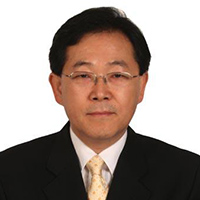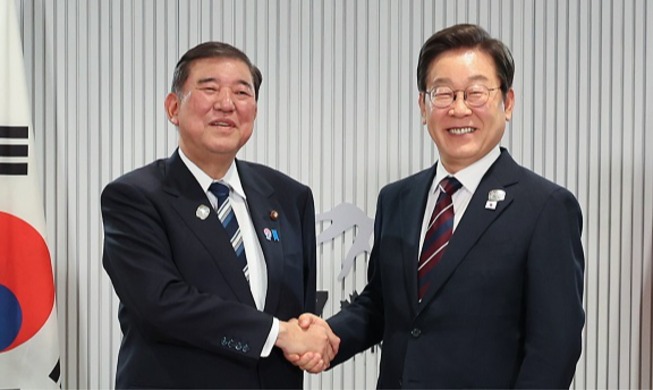
By Yang Keeho
Professor at Sungkonghoe University
Korea's ties with Japan have reached their lowest point since the normalization of bilateral relations in 1965. The Japanese government has not only imposed export restrictions on Korea as a form of economic retaliation but is trying to remove the country from Tokyo's "whitelist" of preferential trading partners. Such actions go against Japanese Prime Minister Shinzo Abe's commitment to "a free, fair and non-discriminatory trade policy" announced last month at the G-20 summit in Osaka. Since the end of World War II, the global order for free trade has served as the most important factor in the world economy as well as a pillar sustaining the economic prosperity of both Korea and Japan. According to a report by the World Trade Organization last year, Japan ranked fourth and Korea sixth in global export volume, proving that both countries are crucial components of the world economy. Bilateral trade reached an estimated USD 85 billion last year, bigger than that between the U.K. and France. Korea, however, has a cumulative trade deficit of USD 600 billion with Japan since 1965, and given this humongous trade deficit, Tokyo's unfair export restrictions considerably hurt the principle of free trade and are thus utterly senseless.
Such restrictions are also extremely unethical. Japan has apparently ignored the pain and scars of forced labor victims, who have fought the Japanese government and companies over the last two decades through lawsuits seeking compensation for their exploitation as teenagers. Despite Tokyo's claim that the export curbs seek to protect Japanese companies, no Japanese business in Korea has faced an irrational situation or tangible damage. On the request from the forced labor victims for the seizure of Korea-based assets of defendant Japanese companies, the verdict from the Korean Supreme Court is likely to come next year in January or February, as hearings have begun with a lower court. Given the lack of tangible damage to Japanese companies in Korea, the export restrictions are indisputably a seriously flawed form of economic retaliation in light of Korea being Japan's most important neighbor that shares strategic interests.
In addition, Japan has threatened additional economic retaliation through the removal of Korea from its whitelist started in 2004 of preferential trading partners qualifying for an inclusive export approval system. Tokyo has justified this action by accusing Korea of not fully implementing control of strategic material exports and sanctions on North Korea. Yet Seoul has faithfully complied with such sanctions per a resolution of the United Nations Security Council (UNSC) and conducted control of strategic material exports in a far stricter manner than Japan. Japan also has yet to respond to South Korea's proposal made on July 12 for a bilateral investigation through UNSC expert panels or relevant international organizations to confirm if any violation occurred between both countries in export controls.
The breakthrough lies in resolving the issue of compensating forced labor victims, the biggest point of contention between Korea and Japan. In the 1965 Korea-Japan Settlement Agreement, both sides never agreed on whether Japan's 1910-45 colonization of the Korean Peninsula was legal. In October last year, the Korean Supreme Court ruled that Japanese annexation of the peninsula in 1910 was illegal, whereas the Japanese government's position continues to be that it was legal based on international law. As such, even if an arbitration committee to discuss the issue is formed, dialogue is highly likely to break down because of the wide gap in opinions between both sides. Moreover, Japan, which proposed this idea, has not even specified what the committee must arbitrate.
Another resolution method is to file the case with the International Court of Justice (ICJ), but this would take more than three years. Most of the forced labor victims are in their 90s and thus could die awaiting the outcome. As of February last year, the number of surviving victims was an estimated 5,200, fewer than several hundred of whom are not expected to survive when the ICJ renders its verdict three years later. This would also be a very inhumane and cruel manner of reaching a resolution, as well as incur a heavy financial burden on both Korea and Japan. Sorting and translating all data would take more than a year and heighten the war of nerves between both countries. And if either country loses, it will suffer a deadly blow.
Thus the two countries should respect the court ruling and the lawsuit process, and must find a breakthrough by limiting the issue's resolution to both sides only. The positions of the two countries are mixed, but if they can at least agree to not bring the issue to the ICJ, this will more effectively help reach a political resolution. In this regard, the Korean government needs to make more concrete its initial proposal made on June 19, when it suggested that companies of both countries jointly form a fund to compensate the victims, by adding additional measures. Korea should create a governance system with victims and the plaintiffs, both of whom fought a legal battle for the last 20 years, and 16 Korean companies including POSCO that benefited from the claims. The solution should also include measures to improve bilateral ties while simultaneously compensating the victims.
Once and for all, Japan must give up its claim that the compensation issue was solved through the 1965 Korea-Japan Claims Settlement Agreement. Japanese companies should also participate in the proposed joint fund as the victims have long sought an appropriate apology and compensation from the Japanese government and companies. The content of the apology and compensation from Japanese companies for forced labor victims should be both clear and definitive. Simply put, Japanese companies need to voluntarily agree to pay compensation to the victims covered in the verdict of the Korean Supreme Court; compensation for individual victims could include a three-year legal prescription for final resolution between Korea and Japan. And additional lawsuits or the fairness of individual compensation should be finalized through legal actions by the Korean side. Now is a critical time for a coolheaded and objective manner to reach a resolution acceptable to the leaders, diplomatic corps and peoples of both countries.
Yang teaches Japanese studies at Sungkonghoe University in Seoul.
Translated by Korea.net staff writer Yoon Sojung
Most popular
- Military discharge sets stage for reunion of all 7 BTS members
- Presidents Lee, Trump discuss tariff deal in first phone talks
- President's 1st executive order is launch of economic task force
- Method found to boost removal of waste products from brain
- 'We are back!' BTS Festa heralds hyped return of K-pop phenom
